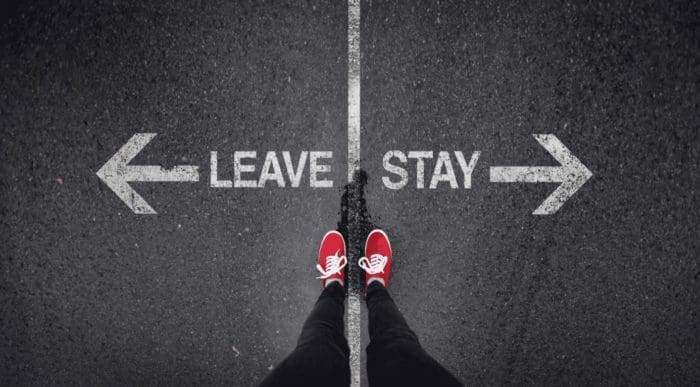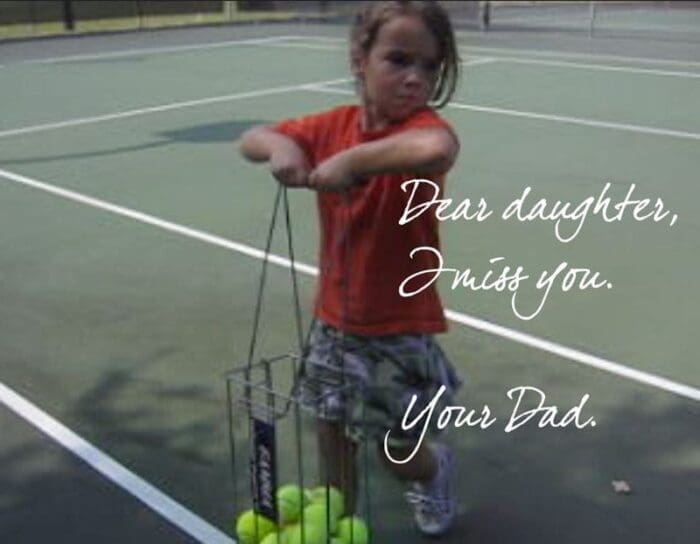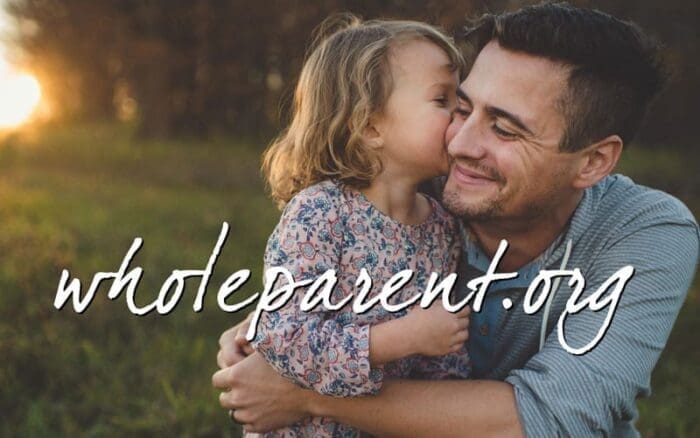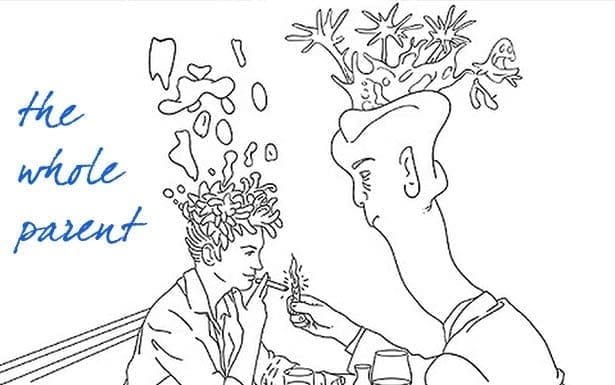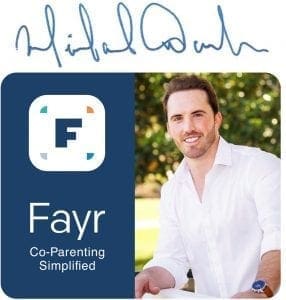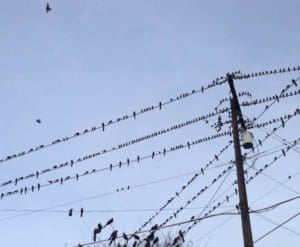Love is bigger than anything in its way.
– U2
When I was younger, I believed my love for my then-wife would carry us through all kinds of hardships. And, this is actually worked for 6 years. But at some point, my optimism and hope were no longer working. My then-wife was always mad, unhappy, depressed, frustrated. She was stuck in some anger-loop, and no matter how many couple’s therapy sessions I instigated, no matter how many nights I gave her a kitchen pass, no matter what I did with my love and optimism, there was very little love and optimism coming back.
What Happens When Love Dies?
I’m sure the love didn’t die in her all at once. When we met and agreed to marry and have children we were both fulfilling a dream. We bounded into parenthood with hope, love, and optimism. We felt the crushing impact of 9-11 and went ahead with our plans to have another child. We had jumped in together, with our souls and our hearts, to make the best, most loving family possible. And for a few years, that’s exactly what we did.
There were struggles along the way, of course, but for the most part my then-wife was resilient and motivated to keep moving forward as a couple and as a family. Of course, something happens when you have kids: you become focused primarily on the kids and less on the relationship. Often couples grow apart in their relationships as they lean in to their parenting duties. We only have so much energy to give, and we’ve committed to giving 100% of it to our children and their healthy and happy upbringing.
Except that’s not going to work.
When you forget to give your relationship some of the nurturing and attention, things begin to get swept under the rug. Little transgressions begin to pile up under the rug until neither of you can ignore that you love each other, but you don’t like each other very much. At this point, each partner has a choice: we can turn into our partners for more of what we need, or we can seek that comfort somewhere else. A marriage is a process of always turning towards your partner rather than away from them.
Sharing What’s Hard
It is easy to skip over the minor irritations in a relationship. We want a night alone with our partner and plans were made without our input, and we find ourselves hosting a family gathering. It’s easy to forget to include our partners in all our decisions, just to keep them in the loop. We make plans that will affect our available time with our family and our partners, it’s a good idea to run it by our significant other, again as a courtesy. It says, “You are important to me. You are a priority in my life. I want to do this other thing, without you.”
When plans keep getting made outside the feedback loop of the WE, the communication becomes less clear. The priority of the loving relationship appears to take a back seat to the fulfillment of the individual’s needs. When the other partner isn’t given the courtesy check-in it says, “I’m doing this. If you don’t like it, shove it.” And, I don’t think that’s the message a loving partner wants to project. Unless, that’s exactly what they want to project.
We Are Always Playing Games
Even when we don’t mean to, we often play games with our partners. We see their text and we ignore it for several hours. Is it because we are gaming them? Is it because we don’t know the answer? Is it because we want them to think we’re as busy as they are? Is it so they learn how it feels when they don’t respond to our texts? When I get the idea that I’m gaming my partner, not responding to make a point, that’s when I need to fess up and discuss it.
“When I text you at 10 in the morning, I know you are working and probably can’t respond in the moment, but within an hour would be nice.”
That’s an okay request. It sets an expectation. It forms a complete ask. And it shows your partner you are interested in negotiating your communication style. When we don’t ask, or don’t tell them that a four-hour delay hurts us, they may never know. It may be that they have had a chaotic day and never got the moment to pause and consider your question. That’s fine. And it’s also fine to ask for a “pingback” that just says, “Got it. Will respond in a bit. In a meeting.” That’s all it takes. Message received. I’m not gaming you. I will respond to your question when I have time to think about it.
And texting is just one example of how we ignore or disrespect our partner’s requests all the time. As we headed down the dark road in my marriage, of “my angry wife” and my attempts to solve the Rubric of her bitterness, I tried everything I could think of. I overcompensated to try and make her happy. And, in that process I began to lose part of myself. I began to lose my optimism. I began to doubt the viability of our love.
Love Is One Continuous Motion
Love doesn’t show up and relieve all of your problems. Loving someone doesn’t mean you can make them happy. You can’t. And even the most optimistic love, as I had in my marriage, cannot overcome one of the partner’s overwhelming distress. We can love the person in crisis. We can give them support, lighten their load where possible, encourage and cheer them one. But we cannot do the work for them. When my then-wife dropped into her dark and angry place, there was very little I could do to bring her out of it.
“You need to pay attention to me,” she would shout. “I am unhappy. This is not working for me.”
She was being honest. She was in an existential crisis. And while I tried to maintain a hopeful and happy home, there was very little I could do to move her angry needle out of the red. Couple’s therapy didn’t help. She used “cynical” to describe her outlook one day on the way to therapy. She was betting against our recovery. She was seeing her own individual therapist. She was “working on it” but I don’t know what effect it was having to get her up and out. She was stuck. She was angry. She stayed angry. Nine years after the divorce, she’s still angry. I don’t think there’s much I could’ve done to lift her out of her anger. Perhaps her anger was not at me, perhaps it was at the world, for not showing up as she had expected.
In love, our choice as a couple is to continue to move towards our partner. In this way I was reading self-help books, I was upping my chores and kid-duty game, I was giving her time alone or time with other friends. I was putting in 100% of my available love and optimism to keep our relationship vital and positive. I learned that love was about giving everything and hoping for the best. But most importantly, it was staying connected to my then-wife as much as I possibly could, even as she was beginning to hate my efforts, hate therapy, hate my own inner happiness.
Happiness
I am happy. I generally wake up in a cheerful mood. Even in my down periods, I have an optimism to my walk on the planet. What I learned from my marriage, divorce, and continuing relationship with one woman was this: there was nothing I could do to make her happy. There still is nothing I can do to make her happy. And, of course, the lesson is, there is nothing any of us can do to make another person happy. When they are going through a rough period the only thing we can do is give them loving-kindness and support.
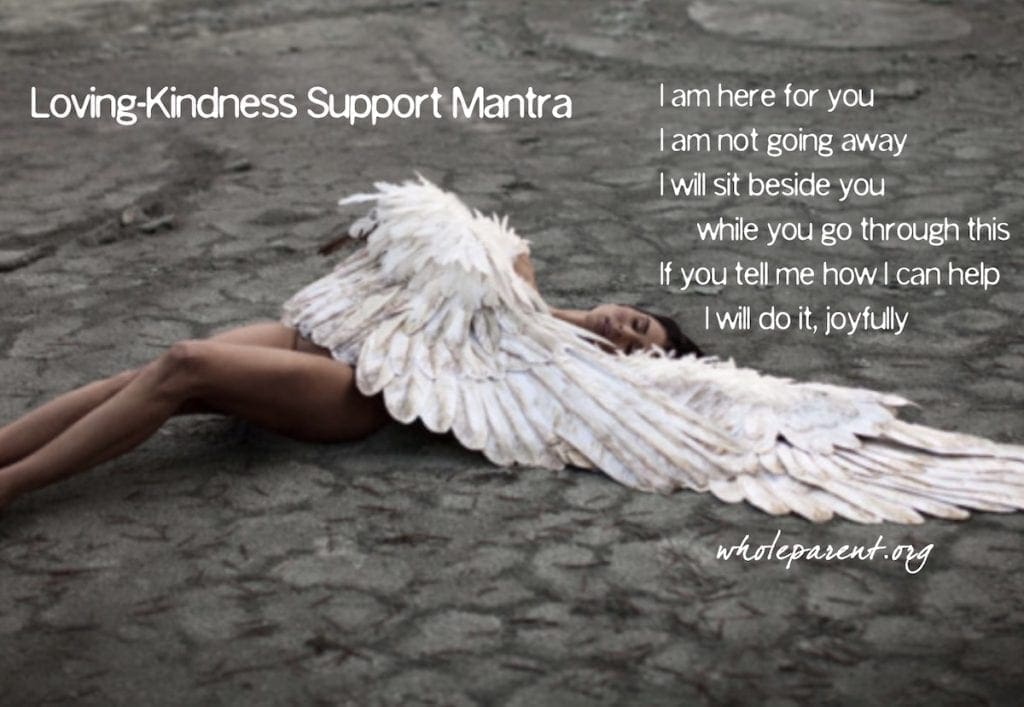
Loving-Kindness Support Mantra
- I am here for you
- I am not going away
- I will sit beside you while you go through this
- If you tell me how I can help I will do it, joyfully
That’s it, that’s all we can do. We can’t get in their heads and push the joy button. We can’t help in their therapy sessions with our insights into why they are still upset. We can’t do much to cure their illness or dysfunction. What we can do is stand strong beside them and let them know we are not going away, even if they are having a hard time.
My divorce was the final enactment of this concept. She decided she wanted to seek greener pastures. Some survival instinct deep in her inner brain was signaling to her that our marriage was the problem with her anger and unhappiness. So she asked for a divorce. At first, I fought against it. I pleaded. I negotiated with our therapist. But when she let it slip that she had been to see an attorney, in couple’s therapy, I got the message. She’s out.
I still tried to support her. I continued to ask her, “Do you think I’m going to walk out the door and you’re going to be a happy person?” Even as we were negotiating the parenting plan and the financial split, I asked if she would consider a reconciliation. There was a patronizing look in her eyes when she smiled at me and said, “No.” She was out. She was making a decision without my input or feedback. And, in fact, that’s what had been happening all along.
Over the last few years of our marriage, after the emotional affair, I think she was trying to say in a relationship that she was not so happy about. Maybe she was doing it for the kids. Maybe she was doing it out of fear. We never got too far into her problems and motivations in therapy, because, somehow the focus was always on me, and what I was doing wrong.
What I was doing wrong was not making her happy. What I’ve learned, and keep learning in my present relationships, I cannot make anyone else happy. I can’t make them love me. I can’t make them make more time for me. I can’t force anyone to do anything they don’t want to do. And if I try, and they give in and gratify my immediate desire, it does not go in the WIN column in either of our hearts.
You Can’t Force the Heart
Love is about spending time together. Love is about always finding the way back to your partner. Love is considering them in all of your decisions. Love is letting them know they are important. Love is letting your partner struggle and not trying to jump in and fix them. Love is standing strong beside your partner and giving them the comfort and reassurance that you are strong, you are available, and you continue to love them even in their struggle. Love is struggling together. Not carrying each other’s loads, but carrying your own load as best you can, and giving them the reassurance that you’re committed to them in all their many colors.
People will do what they want to do. Love will not push a partner into doing something they don’t want to do. That’s not love, that’s codependency. By remaining true to love we allow our partners to feel the full range of emotions without fear of rejection or reprisal. Give them what you need: connection, optimism, and love.
Always Love,
John McElhenney – life coach austin texas
Facebook | Instagram | Pinterest | @wholeparent
related posts:
- ME Cycles and Wondermints: Why Is Self-Care So Difficult?
- Commitment and Fear: Closing the Available Exits to Find Your Edge
- I Am a Big Love Generator: It’s Not Easy for Me to Slow My Roll
- Alignment in Time and Space: Finding and Refinding Your Partner
+++


